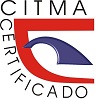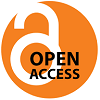Modelo de gestión educativa, mediado por las tecnologías digitales, para potenciar el vínculo familia-escuela-comunidad
Educational management model, mediated by digital technologies, to enhance the family-school-community bond
Palabras clave:
gestión educativa, tecnología de la información y la comunicación, modelo, vínculoResumen
El Sistema Educativo de la República Dominicana implementa estrategias para favorecer la integración, tanto en el ámbito de la familia, la escuela y la comunidad, así como la integración de las tecnologías de la información y la comunicación. Objetivo: Proponer un modelo de gestión educativa mediado por las tecnologías de la información y la comunicación, que potencie el vínculo familia-escuela-comunidad en el Instituto Técnico Salesiano. Se utilizan métodos teóricos como: análisis documental, analítico-sintético e inductivo-deductivo y el enfoque sistémico estructural-funcional que posibilitan realizar la sistematización de posiciones que se asumen para su mejor compresión. Como complemento del estudio se asumió la investigación acción participativa. Resultados: el modelo de gestión educativa cuenta con: fin y objetivo, principios y descripción del contexto de aplicación; la forma de implementación se realiza mediante una estrategia metodológica, ordenada en tres etapas lo estructural-organizativo, lo comunicacional y lo procedimental, cada una de ellas con sus objetivos y modo de aplicación, finalmente se presenta la forma de evaluarlo. El modelo propuesto organiza y centraliza la intención y las acciones de los docentes y directivos estructurado desde las Ciencias de la Educación, para garantizar la comprensión de todos los involucrados y el éxito de su funcionamiento.
Abstract:
The Educational System of the Dominican Republic implements strategies to promote integration, both in the family, school and community, as well as the integration of information and communication technologies. Objective: Propose an educational management model mediated by information and communication technologies, which enhances the family-school-community link at the Salesian Technical Institute. Theoretical methods are used such as: documentary analysis, analytical-synthetic and inductive-deductive and the structural-functional systemic approach that make it possible to systematize positions that are assumed for better understanding. Participatory action research was assumed as a complement to the study. Results: the educational management model has: aim and objective, principles and description of the application context; The form of implementation is carried out through a methodological strategy, organized into three stages: structural-organizational, communicational and procedural, each of them with its objectives and mode of application. Finally, the way to evaluate it is presented. The proposed model organizes and centralizes the intention and actions of teachers and managers, structured from the Educational Sciences, to guarantee the understanding of all those involved and the success of its operation.
Keywords: educational management, information and communication technology, model and link
Descargas
Citas
Arias Ortega, K., Gajardo, M., Sierpe, J., y Santini, Y. (2024). Desafíos de la relación familia-escuela en contexto mapuche: aproximación desde los profesores. (2024). Educação E Pesquisa, 50, e263419. https://doi.org/10.1590/S1678-4634202450263419es.
Carvajal Villaplana, Á. (2013). Teorías y modelos: formas de representación de la realidad. Revista Comunicación, 12(1), 33-46. https://doi.org/10.18845/rc.v12i1.1212
Colado Pernas, J. E., Chitata Alfonso, J. C., y Becerra Lescalle, A. (2020). Reflexiones acerca de algunos resultados científicos empleados en las investigaciones. Varona, 70, 1-9. http://revistas.ucpejv.edu.cu/index.php/rVar/article/view/894
Colunga Santos, S. (2022). Pautas para la delimitación y empleo de los resultados científicos en la investigación educativa. Humanidades Médicas, 22(2), 207-232. Recuperado de https://humanidadesmedicas.sld.cu/index.php/hm/article/view/2333
De Mendoza, A. (08 de Nobiembre de 2021). Educación y tecnología en tiempos de COVID-19. UNICEF Perú: https://www.unicef.org/peru/historias/educacion-tecnologia-en-tiempos-covid19
Díaz Flores, G. (2012). Las estrategias metodológicas y la actitud crítica de los estudiantes ingresantes de la Facultad de Educación de la Universidad Nacional Mayor de San Marcos. [Tesis de Doctorado] Universidad Nacional Mayor de San Marcos. Perú.
Escalona Serrano, E. (2018). La investigación educativa y los modelos de investigación. Revista de Ciencias de la Educación, 44(174), 123-140.
Ferrater Mora, J. (1999). Diccionario de Filosofía, tomos 3 y 4, 1° ed., Barcelona: Barcelona: 1ra edición. https://profesorvargasguillen.files.wordpress.com/2011/10/jose-ferrater-mora-diccionario-de-filosofia-tomo-i.pdf
Huertas López, T. E., Suárez García, E., Salgado Cruz, M., Jadán Rodríguez, L. R., & Jiménez Valero, B. (2020). Diseño de un modelo de gestión. Base científica y práctica para su elaboración. Revista Universidad y Sociedad, 12(1), 165-177. Epub 02 de febrero de 2020. http://scielo.sld.cu/scielo.php?script=sci_arttext&pid=S2218-36202020000100165&lng=es&tlng=es
Ley 66-97 Ley general de educación. (4 de febrero del 1997). Artículo 182 [Titulo IX, capítulo]. Santo Domingo de Guzmán, Distrito Nacional: Palacio del Congreso Nacional, Gaceta Oficial núm. 9951. https://www.oas.org/juridico/spanish/mesicic2_repdom_sc_anexo_7_sp.pdf
Loor Alcívar, K. K., & Alarcón Barcia, L. A. (). Estrategias metodológicas creativas para potenciar los estilos de aprendizaje. Revista San Gregorio, (48), 1–14. https://doi.org/10.36097/rsan.v0i48.1934 .
Lund, S. C., Madgavkar, A., Manyika, J., Smit, S., Ellingrud, K., Robinson, P., y Bughin, J. (2021). The Future of work after COVID 19. McKinsey Global Institute. https://www.mckinsey.com/featured-insights/future-of-work/the-future-of-work-after-covid-19
Pizzolante Negrón, I. (2006). El mundo interno de la empresa (5ta. ed.). Caracas: Los libros de El Nacional.
Rodríguez, C., Yanez Pagans, M., Trommer, J., Polanco Santos, P. P., Aísa, J. A., Abreu Malla, L. S., y Morales Romero, D. R. (2022). Educación para Todos salvaguardando la salud: una mirada al desempeño de la educación a distancia del sector público en la República Dominicana en tiempos de COVID-19. República Dominicana: Banco Mundial. https://documentos.bancomundial.org/es/publication/documents-reports/documentdetail/099501304072211163/idu0e3f5542f0b8890449408f740602a98c3f9dd .
Ropa-Carrión , B., & Alama-Flores, M. (2022). Gestión organizacional: un análisis teórico para la acción. Revista Científica De La UCSA, 9(1), 81–103. https://doi.org/10.18004/ucsa/2409-8752/2022.009.01.081.
Valle Lima, A. D. (2009). Algunos Modelos Importantes en la Investigación Pedagógica. La Habana, Cuba.
Valle Lima, A. (2010). La investigación pedagógica otra mirada. La Habana: SN.
Vargas Fernández, M., Cabezas Salmon, M., y Caballero Rodríguez, A. N. (2023). La orientación familiar, su posicionamiento teórico e impacto en la relación escuela-familia-comunidad. EduSol, 23(82), 121-129.
Vesga Rodríguez, J. J., Rubiano, M. G., Forero Aponte, C., Aguilar Bustamante, M. C., Jaramillo, J. A., Quiroz González, E., y Gómez Vélez, M. A. (2020). Aspectos de la cultura organizacional y su relación con la disposición al cambio organizacional. Suma psicológica, 27(1), 52-61. https://doi.org/10.14349/sumapsi.2020.v27.n1.7
Publicado
Cómo citar
Número
Sección
Licencia
Derechos de autor 2024 Pedro Antonio Torres Polanco , Hamdid García Verdecia, Yanelín López Rodríguez

Esta obra está bajo una licencia internacional Creative Commons Atribución-NoComercial 4.0.
Horizonte Pedagógico es una revista Open Access, lo que quiere decir que todo su contenido es accesible libremente sin cargo para el lector o su institución. Los usuarios están autorizados a leer, descargar, copiar, distribuir, imprimir, buscar o enlazar a los textos completos de los artículos de esta revista sin permiso previo del editor o del autor, de acuerdo con la definición BOAI de open access. Los autores que publican en esta revista están de acuerdo con los siguientes términos: Los autores conservarán los “Derechos de autor” y garantizan a la revista el derecho de ser la primera publicación del trabajo. La revista se encuentra protegida bajo una licencia internacional de Creative Commons Attribution License Atribución 4.0 Internacional (CC BY NC 4.0), que permite a otros compartir (copiar y redistribuir el material en cualquier medio o formato) y adaptar (remezclar, transformar y construir a partir del material), para cualquier propósito, incluso comercialmente. Bajo las siguientes condiciones: atribución (usted debe dar crédito de manera adecuada, brindar un enlace a la licencia, e indicar si se han realizado cambios y no comercial — Usted no puede hacer uso del material con propósitos comerciales. Puede hacerlo en cualquier forma razonable, pero no de forma tal que sugiera que usted o su uso tienen el apoyo de la revista o el autor de la publicación.






















